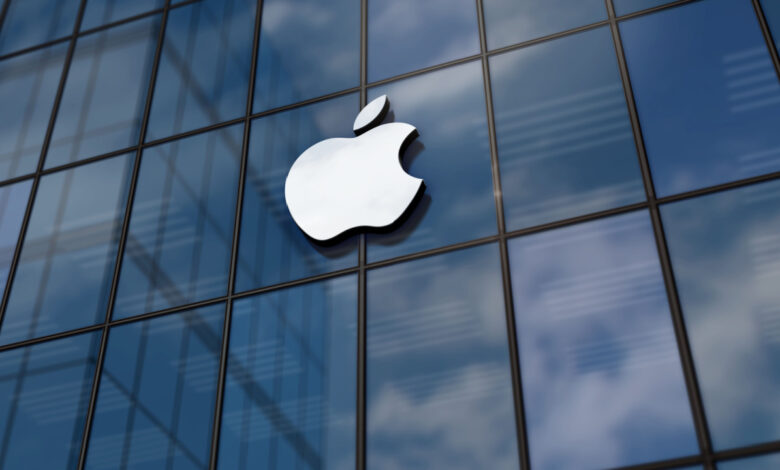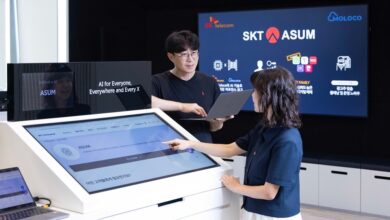Apple’s AI Ambitions Take Aim at Transforming Tech Landscape

As Apple gears up for WWDC, its highly anticipated annual developers conference on June 10, the tech giant is poised to unveil artificial intelligence (AI) integration across its entire product line.
With the invites now sent out, the stage is set for Apple to showcase its AI plans.
The conference will be held at the iconic Apple Park and will introduce iOS 18, the latest iteration of Apple’s mobile operating system. Rumor has it iOS 18 will likely feature a host of AI-powered enhancements that will transform how users interact with their devices.
From an AI-driven Safari browser that intelligently adapts to user preferences to a Photos app that employs advanced machine learning algorithms for enhanced image recognition and organization, iOS 18 promises to set a new standard for mobile OS capabilities.
The shift to AI also hints at Apple’s challenges as it confronts a tech landscape increasingly dominated by AI. PYMNTS’ Karen Webster recently wrote that despite its impressive achievements, Apple faces fundamental strategic issues that raise significant questions about its future as a leading mobile technology ecosystem and its high-market valuation.
iOS 18 and Beyond: Unveiling AI-Driven Innovations
Apple’s commitment to AI integration extends beyond its mobile OS.
The company confirmed that its recently announced M4-powered iPad Air and iPad Pro tablets will boast enhanced machine-learning capabilities designed explicitly for AI-based tasks. This move signals Apple’s recognition of the growing demand for devices that can seamlessly handle the complex computations required by AI applications, positioning the company to capitalize on the burgeoning market.
The implications of Apple’s AI push are far-reaching, potentially disrupting multiple industries and redefining user expectations. As more and more of Apple’s products become AI-powered, consumers will likely expect a level of intuitive, personalized interaction beyond traditional devices’ capabilities. This shift could pressure competitors to follow suit, accelerating the adoption of AI across the tech sector and beyond.
Microsoft leaped into the AI revolution, recently unveiling new computers with AI integrated directly into its Windows operating system. The move, announced at the company’s annual developer conference, aims to boost sagging PC sales and bring AI into everyday life.
CEO Satya Nadella emphasized the company’s vision: “We’re getting closer to building computers that understand us, rather than us having to understand them.” He expressed optimism about achieving a breakthrough in AI integration.
The new Copilot+ PCs, including the latest Surface Pro tablet and Surface laptop, feature advanced processors for AI tools that operate directly on the device, eliminating the need for internet connectivity. These devices leverage OpenAI’s new GPT-4o technology, transforming ChatGPT into a digital personal assistant capable of real-time, spoken conversations and interaction using text and “vision.” Users can upload screenshots, photos, documents or charts and conduct conversational analysis with the assistant.
Microsoft’s new hardware also highlights its existing AI assistant, Copilot, which integrates across various products like Bing and Microsoft 365. Copilot assists with tasks such as writing, managing Outlook emails and designing PowerPoint presentations. A notable feature, Recall, functions as a personal “time machine,” enabling users to swiftly retrieve documents, images and websites from their computers. Another feature offers real-time translation into over 40 languages directly on the device.
As PC sales have stagnated in recent years, Microsoft hopes these AI-driven innovations will reignite consumer interest and revive the market.
And Then There’s the Cloud
Not to be left out of the AI race, Amazon Web Services (AWS) has launched generative AI-powered assistants for software development and business decision-making.
Amazon Q Developer autonomously generates, tests and debugs code, while Amazon Q Business provides employees with answers to company-related questions and insights from over 40 business tools. AWS has also teamed up with SAP to make it easier for businesses to use SAP’s RISE solution on AWS, improve SAP workload performance in the cloud and add AI capabilities to enterprise applications.
Google also has introduced updates to its AI suite, allowing cloud clients to ground models in Google Search for high-quality, reliable information. Additionally, enterprises can now leverage retrieval augmented generation (RAG) to ground AI responses in their data, laying the foundation for advanced AI agents capable of searching and task execution.
The Future of Personal Computing
However, the advent of AI-powered PCs raises important questions about privacy, security and cost.
As these machines collect and process vast amounts of user data to fuel their AI features, Apple will need to demonstrate a commitment to data protection and implement robust security measures to maintain customer trust. Additionally, the potentially higher costs associated with the advanced hardware required for local AI processing may present a barrier to widespread adoption, particularly in the consumer market.
Despite these challenges, the potential benefits of Apple’s AI ambitions are immense. From streamlined workflows and enhanced productivity to intelligent assistants anticipating user needs, AI can revolutionize how we interact with technology.
As the tech world awaits the revelations of WWDC, it is clear that Apple’s AI vision extends beyond mobile devices and into personal computing, with an aim to reshape the industry and redefine the future of technology.



